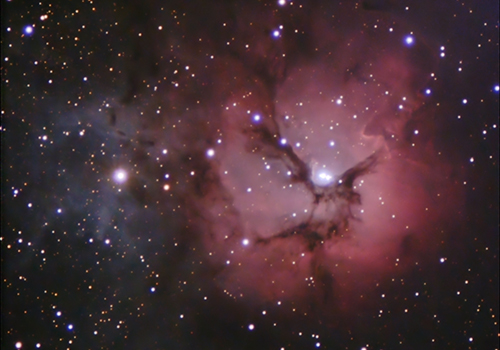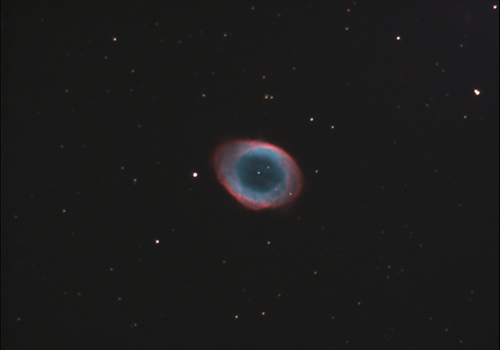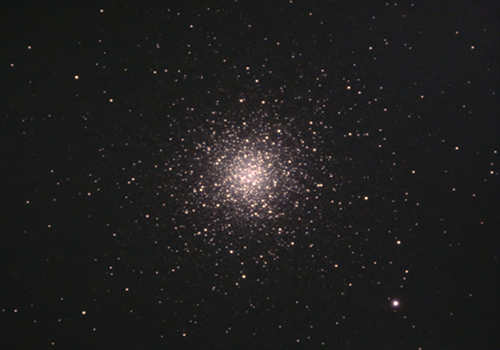Close encounters
Associate Professor Matthew Lopper ’98 organized virtual sky tours for current and prospective students, faculty and staff, and alumni throughout the spring and summer of 2020.
This spring, Matthew Lopper ’98, associate professor of chemistry, discovered something was missing. The usually chatty students in his upper-level courses appeared instead quiet and distant when classes went to Zoom. “I need to give them something different to think about,” he decided. “I’ll send out an invitation and see who is as bored as I am on this Friday night.”
He set up his telescope, replaced the eyepiece with a webcam, and messaged his students to join in online. “One, then another, then another started showing up, and we spent a couple of hours on my driveway looking at Venus and pictures of planets I’ve taken over the years,” Lopper said.
His students opened up, interacted and had fun. Lopper considered it a success. The students, though, considered it only a beginning. They recruited members and formed DARC, the Dayton Astronomy Research Club. Matthew Bugada, senior biochemistry major and DARC president, remembers how intensely Venus shone that night. “It gave all of us a chance to reflect on something distant and far away, and we could all look up at it with awe.”
- Through the summer, Lopper conducted nine more virtual sky tours for current and prospective students, faculty and staff, and alumni.
- He has three telescopes at home, including one Lopper calls the “yard cannon,” a reflecting telescope so big he put it on wheels so he can roll it out of the garage whenever the skies clear.
- In autumn, he suggests fixing your eyes on Mars, red and bright in the sky — though it’s often fuzzy through a telescope, thanks to the Mars atmosphere and dust storms.
- Lopper created a photo of Messier 20, the Trifid Nebula, from his driveway in Dayton’s south suburbs. He stacked 720 5-second frames as seen through a Tele Vue 102mm refractor telescope, then boosted the image to let the planet-forming dusts shine.
- On YouTube, Lopper demonstrates how to adjust images captured by telescope to bring their beauty to life.
- His favorite planets are the gas giants of Jupiter and Saturn. “You never get tired of the rings.”
- Lopper said he doesn’t bring his telescope on vacation. “If it’s really dark, I just end up sitting back and using my eyes.”
- There was no space in Lopper’s Stuart Hall room his freshman year for his giant telescope. “I can remember sitting out on Stuart Hill, just looking up at whatever punctured the light pollution of Dayton.”




